
The Untamed Beauty of Mazaruni River
The Mazaruni River, nestled in the heart of Guyana, offers a mesmerizing display of untamed nature. Winding through dense rainforests and dotted with majestic waterfalls, this river is a hidden gem waiting to be discovered by adventurers. As you travel along its course, you will be greeted by the lush greenery of the jungle, the vibrant wildlife, and the serene sounds of nature. The Mazaruni River is not just a river; it’s an experience that connects you with the raw beauty of the tropical wilderness. As you explore the river, you will come across indigenous villages that provide a unique cultural experience. The local tribes have thrived along the Mazaruni for centuries, and their traditions and lifestyles offer an enriching glimpse into a way of life that is in harmony with nature. The hospitality of the people and their rich cultural heritage add depth to your journey, making it not just a trip through stunning landscapes, but also a voyage through time and tradition. The Mazaruni River is also a paradise for adventure seekers. From thrilling boat rides that navigate its rapid currents to fishing excursions that promise a catch of local species, there is no shortage of activities. The river’s pristine waters are perfect for swimming, and the surrounding forests are excellent for hiking and bird-watching. Whether you are looking for relaxation or excitement, the Mazaruni River has something for everyone.
Local tips in Mazaruni River
- Hire a local guide to navigate the river safely and to learn about the region's history and wildlife.
- Pack insect repellent and lightweight, long-sleeved clothing to protect against mosquitoes and other insects.
- Visit the indigenous villages to experience local culture and cuisine; it's a highlight of the trip.
- Carry a waterproof camera to capture the stunning scenery and waterfalls along the river.
- Plan your trip during the dry season (September to November) for more accessible travel and clearer skies.
The Untamed Beauty of Mazaruni River
The Mazaruni River, nestled in the heart of Guyana, offers a mesmerizing display of untamed nature. Winding through dense rainforests and dotted with majestic waterfalls, this river is a hidden gem waiting to be discovered by adventurers. As you travel along its course, you will be greeted by the lush greenery of the jungle, the vibrant wildlife, and the serene sounds of nature. The Mazaruni River is not just a river; it’s an experience that connects you with the raw beauty of the tropical wilderness. As you explore the river, you will come across indigenous villages that provide a unique cultural experience. The local tribes have thrived along the Mazaruni for centuries, and their traditions and lifestyles offer an enriching glimpse into a way of life that is in harmony with nature. The hospitality of the people and their rich cultural heritage add depth to your journey, making it not just a trip through stunning landscapes, but also a voyage through time and tradition. The Mazaruni River is also a paradise for adventure seekers. From thrilling boat rides that navigate its rapid currents to fishing excursions that promise a catch of local species, there is no shortage of activities. The river’s pristine waters are perfect for swimming, and the surrounding forests are excellent for hiking and bird-watching. Whether you are looking for relaxation or excitement, the Mazaruni River has something for everyone.
When is the best time to go to Mazaruni River?
Iconic landmarks you can’t miss
The 1763 Monument
Explore the 1763 Monument in Georgetown, a historical tribute to freedom and resilience in Guyana’s rich cultural heritage.
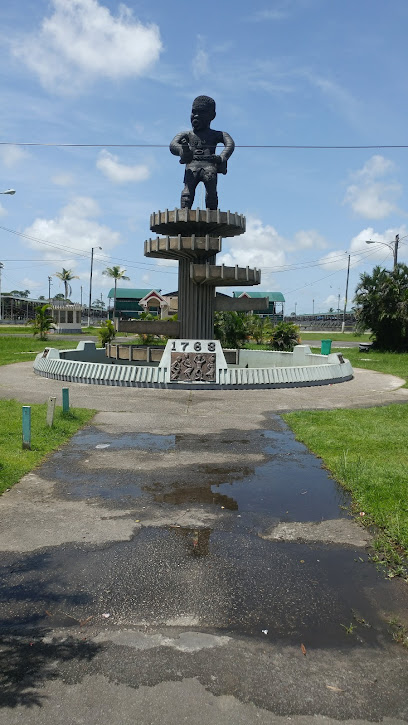
Fort Zeelandia
Discover the rich history of Fort Zeelandia, a stunning historical landmark in Guyana that reveals the tales of colonial struggles and offers breathtaking riverside views.
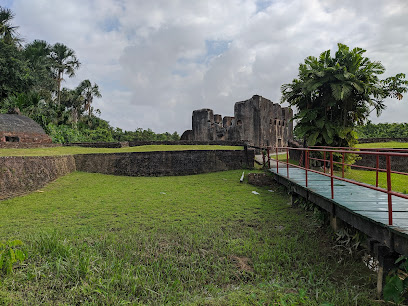
Damon Monument
Discover the Damon Monument in Anna Regina, a striking tribute that reflects the cultural heritage and history of the region.
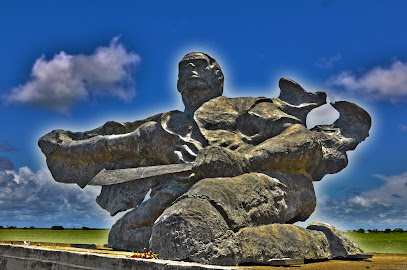
Iwokrama Forest
Explore the breathtaking biodiversity of Iwokrama Forest, a pristine nature preserve in Guyana, where adventure and conservation go hand in hand.

Fort Kyk-Over-Al
Explore the historical charm and scenic beauty of Fort Kyk-Over-Al, a prominent landmark in St Edwards Mission, Guyana.
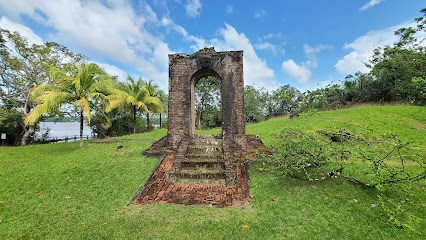
Non-Aligned Monument
Explore the Non-Aligned Monument in Georgetown, Guyana, a striking tribute to peace and unity amidst rich cultural heritage.
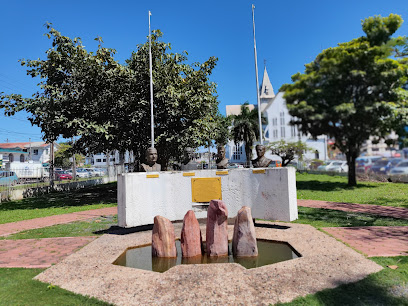
Mabaruma Stone Monument
Explore the Mabaruma Stone Monument - a remarkable testament to Guyana's cultural heritage and artistry, nestled in the heart of Mabaruma town.
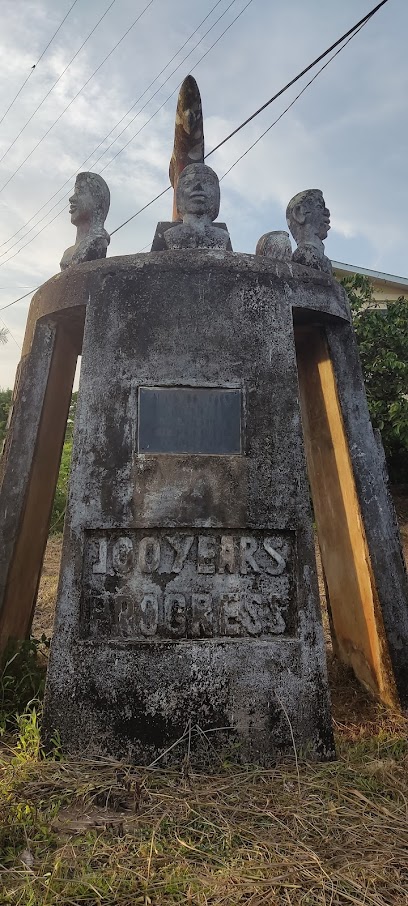
Unmissable attractions to see
Kaieteur Falls - Guyana
Experience the breathtaking beauty of Kaieteur Falls, one of the world's highest waterfalls, surrounded by lush rainforest in Guyana.
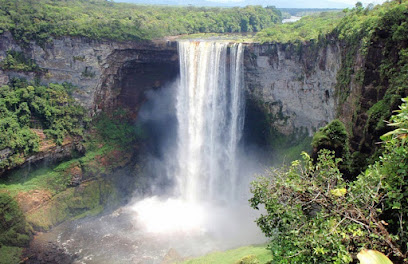
Guyana National Museum
Explore the Guyana National Museum in Georgetown, a fascinating journey through the country's rich history and diverse cultural heritage.
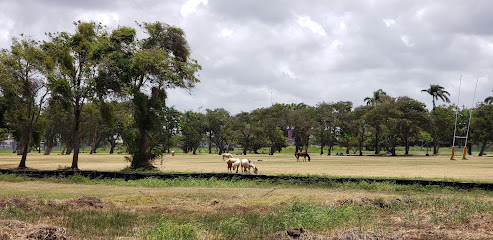
Blue Lake Linden
Explore the stunning Blue Lake Linden in Guyana, a natural paradise perfect for relaxation, picnics, and outdoor adventures amidst breathtaking scenery.
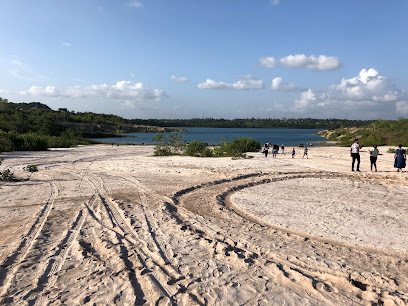
Kaieteur National Park
Explore the stunning Kaieteur National Park, home to breathtaking waterfalls and rich biodiversity in the heart of Guyana's lush rainforest.
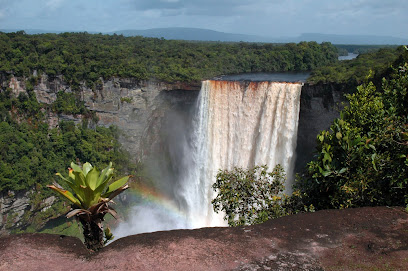
Iwokrama River Lodge
Experience the beauty and adventure of Guyana at Iwokrama River Lodge, an eco-tourism paradise in the heart of the rainforest.
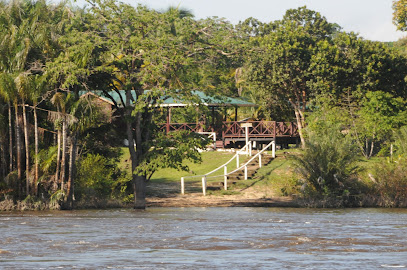
I Love Guyana Sign
Discover the I Love Guyana Sign, where national pride meets vibrant culture in the heart of Georgetown, perfect for unforgettable photos and local interactions.
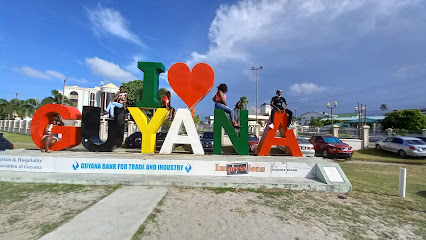
Fort Zeelandia
Explore Fort Zeelandia, an iconic historical landmark in Guyana, where colonial history meets stunning river views and architectural marvels.
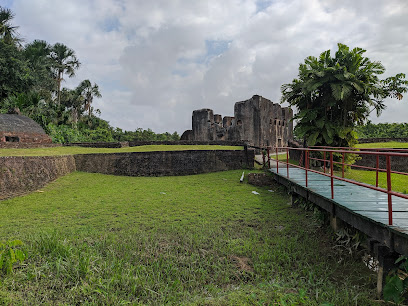
Jubilee Resort
Discover the enchanting Jubilee Resort in Demerara Mahaica, where relaxation meets adventure in a tropical paradise.
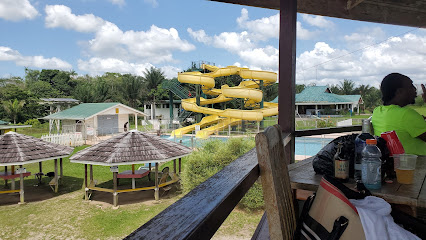
Mahaica River Birding Tour
Discover the breathtaking biodiversity of the Mahaica River, a top destination for birdwatching enthusiasts in the heart of Guyana.
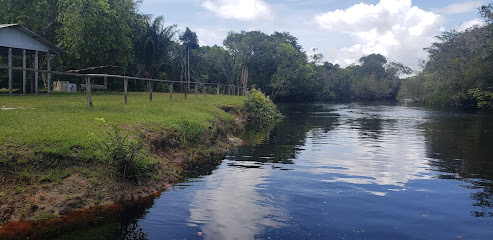
Damon Monument
Discover the Damon Monument in Anna Regina, a symbol of cultural pride and resilience, where history and community spirit come alive.
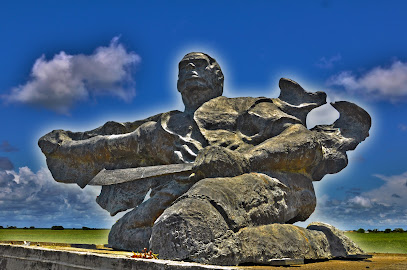
Mount Roraima - Guyana
Explore the breathtaking landscapes and unique ecosystems of Mount Roraima, a stunning natural wonder at the border of Guyana, Venezuela, and Brazil.
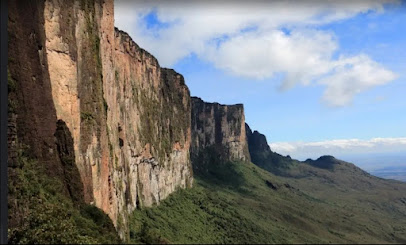
Iwokrama Canopy Walkway
Explore the breathtaking Iwokrama Canopy Walkway in Guyana, where adventure meets nature in a stunning rainforest setting.
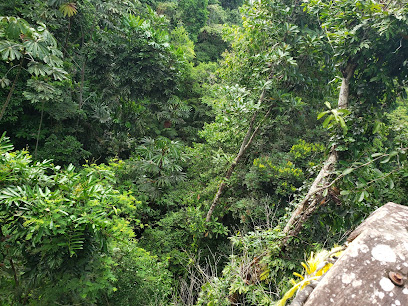
The Rs Farm | Agri-Eco Retreat | Outdoor Event Space
Experience the beauty of The Rs Farm, an eco-friendly retreat offering nature, tranquility, and outdoor adventures in Demerara-Mahaica.
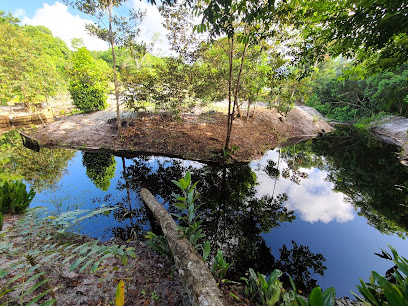
Gladys Lake (Mount Roraima - Guyana)
Explore the stunning Gladys Lake at Mount Roraima, a hidden gem in Guyana perfect for hiking and immersing yourself in nature's beauty.
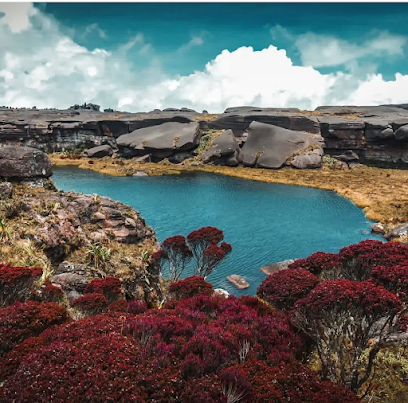
Kumarau Waterfalls
Experience the breathtaking beauty and tranquility of Kumarau Waterfalls, a must-visit natural wonder in the heart of Guyana's lush landscapes.
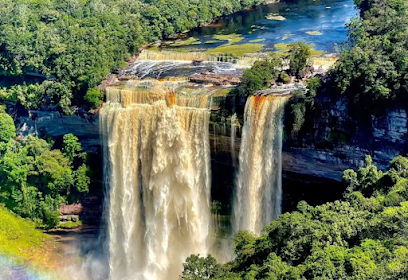
Essential places to dine
Hard Rock Cafe Guyana
Discover Hard Rock Cafe Guyana: A vibrant fusion of American cuisine and rock 'n' roll culture in the heart of Georgetown.
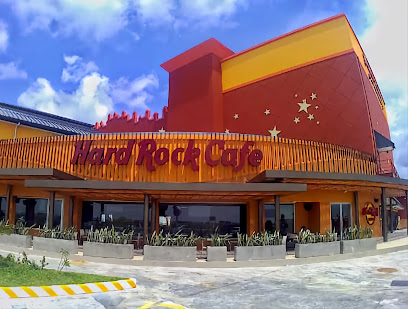
Aagman Indian Restaurant
Experience authentic Indian flavors at Aagman Indian Restaurant in Georgetown - a must-visit for food lovers.
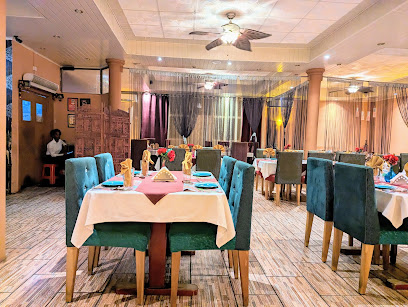
The New Thriving Restaurant
Experience the vibrant flavors of Asia at The New Thriving Restaurant in Georgetown, where every dish tells a story of culinary excellence.
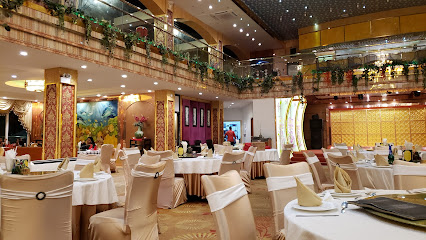
Maharaja Palace Restaurant
Discover authentic Indian flavors at Maharaja Palace Restaurant in Georgetown – where culinary tradition meets modern fusion.
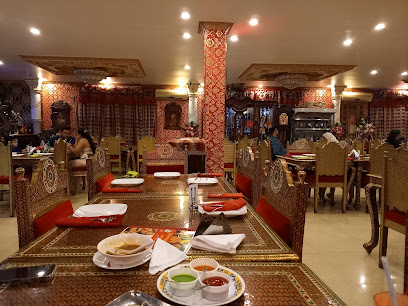
Amici
Experience the essence of Italy at Amici in Georgetown - where authentic flavors meet warm hospitality.
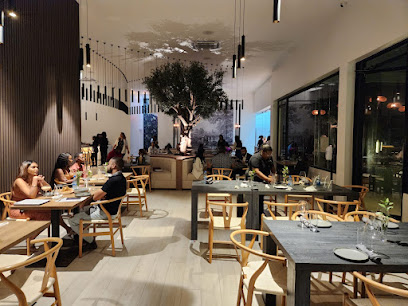
Mario's Pizza
Discover authentic Italian flavors at Mario's Pizza in Georgetown - where every slice tells a story.
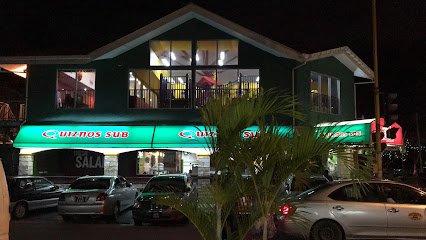
Jagdesh Duck Curry Bar
Discover authentic Guyanese cuisine at Jagdesh Duck Curry Bar in Anna Regina - a must-visit for food lovers seeking unique flavors.
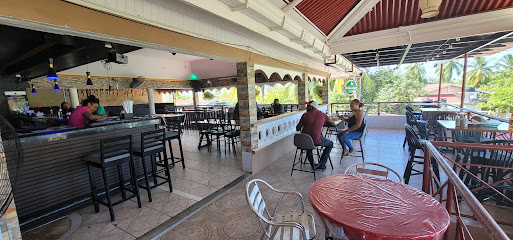
Terra Mare
Experience the rich flavors of Guyana at Terra Mare in Georgetown - a must-visit restaurant blending local delights with international flair.
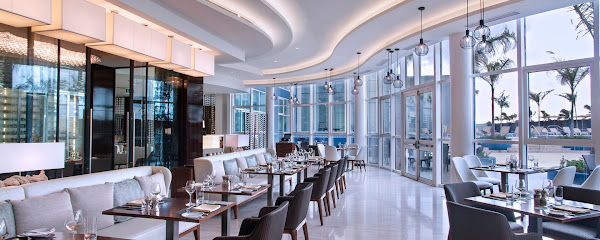
Fusion by Pegasus
Experience a delightful fusion of local and international flavors at Fusion by Pegasus in Georgetown, Guyana.
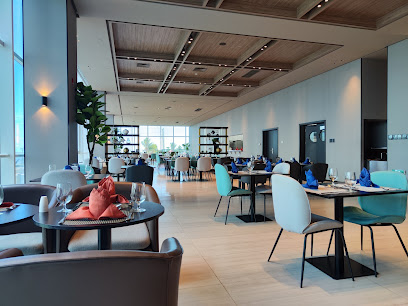
Dada's Grill
Experience authentic American flavors at Dada's Grill in Vergenoegen – where comfort food meets local charm.
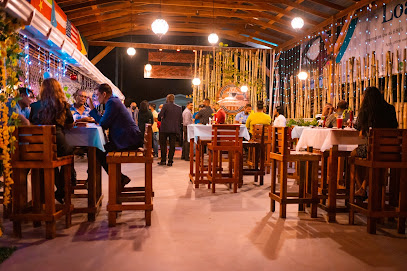
Country Spice Kitchen
Experience authentic Caribbean cuisine at Country Spice Kitchen in Parika - where every meal tells a story!
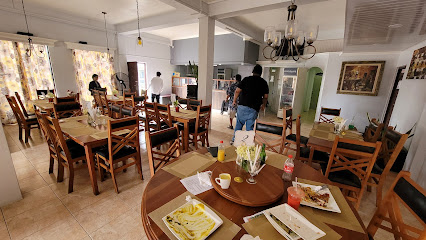
Backyard Kitchen
Discover authentic local flavors at Backyard Kitchen in Uitvlugt - where fast food meets Guyanese culinary tradition.

River Side Hall
Experience delightful dining at River Side Hall in Nismes—where local flavors meet stunning riverside views.

Markets, malls and hidden boutiques
D&R variety store
D&R Variety Store in Bartica: Your one-stop shop for local groceries, snacks, and a taste of Guyanese culture.

Dino's Investment LTD
Discover local flavors and unique products at Dino's Investment LTD in Bartica, the perfect grocery stop for tourists exploring Guyana.
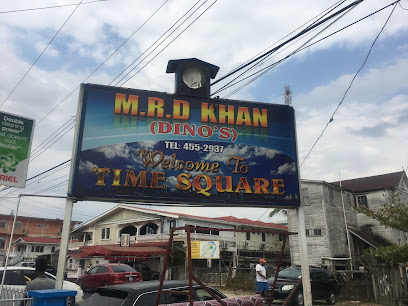
Ramsingh General Store
Discover local flavors at Ramsingh General Store in Bartica, your go-to grocery for fresh produce and unique regional products.

SPEEDLINKS SHIPPING - Green Shop Grocery - Rakila’s Cakes & Cupcakes
Experience the best of Bartica at SPEEDLINKS SHIPPING - your go-to grocery store and cake shop for local flavors and sweet treats.
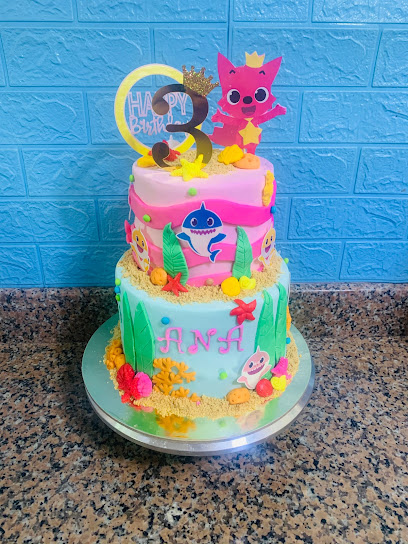
Unicomer Courts
Explore Unicomer Courts in Bartica for a diverse selection of quality home goods that capture the essence of local craftsmanship.
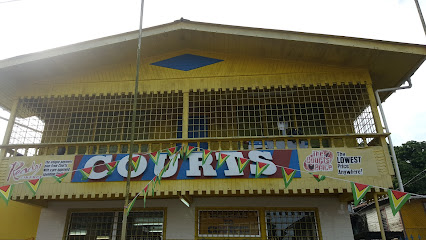
Sir’s Service Station, Hardware and General Store
Discover the charm of Bartica at Sir's Service Station, your go-to general store for local goods and friendly service.
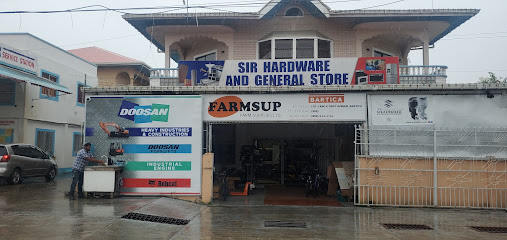
Mike & Tessa Grocery Store
Discover local treasures at Mike & Tessa Grocery Store in Bartica, where fresh produce and friendly service await every visitor.
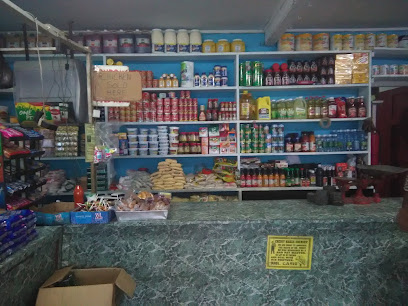
M.N.Kassim & Sons
Discover local treasures at M.N.Kassim & Sons, Bartica's beloved general store for essentials and unique souvenirs.

Tiffany's Collections
Explore Tiffany's Collections in Bartica for trendy clothing and a delightful shopping experience that reflects local culture and style.

Kmz Trendline Boutique
Experience the vibrant shopping scene at Kmz Trendline Boutique in Bartica, where local culture meets modern retail.

JR Boutique
Explore Bartica's fashion scene at JR Boutique, where trendy styles meet local culture in a vibrant shopping experience.
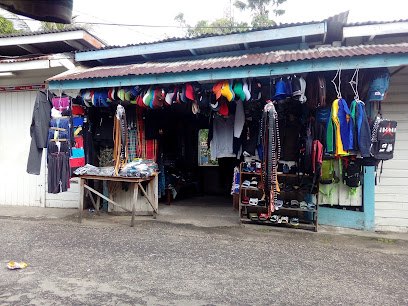
P & S GROCERY & HARDWARE
Discover the heart of Bartica at P & S Grocery & Hardware - where local culture meets everyday essentials.

Crazy Cart GY
Explore unique fashion at Crazy Cart in Bartica, where local culture meets trendy clothing in a vibrant shopping experience.

Thunders Enterprise Inc.
Discover unique home goods and artisanal treasures at Thunders Enterprise Inc. in Bartica, Guyana - your gateway to local craftsmanship.

Daystar Variety Mart
Experience the vibrant local culture and diverse offerings at Daystar Variety Mart, your go-to stop in Bartica for unique souvenirs and local goods.

Essential bars & hidden hideouts
Green Grain Pool Bar
Unwind at Green Grain Pool Bar, a vibrant hotspot in Parika Market, offering refreshing drinks and a lively atmosphere perfect for tourists.
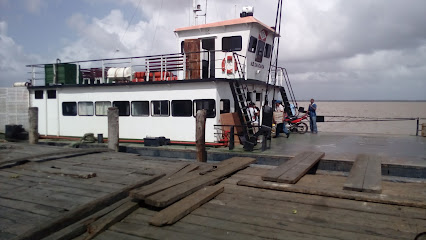
King's Empire Bar & Hangout Spot
Discover Linden's nightlife at King's Empire Bar & Hangout Spot, where great drinks and a lively atmosphere come together for an unforgettable experience.
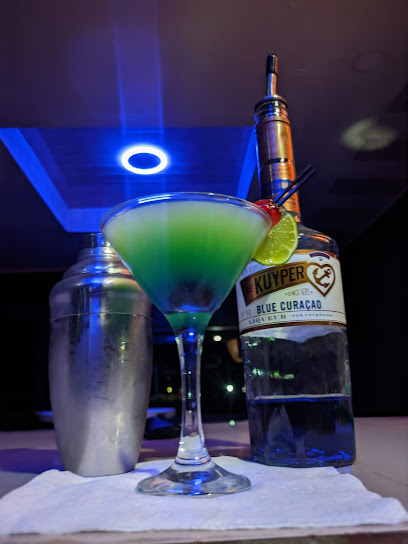
Belle Square
Experience the essence of Guyanese cuisine at Belle Square, Bartica's premier dining destination for travelers seeking local flavors.

Agave Sky Bar
Discover the vibrant ambiance and refreshing cocktails of Agave Sky Bar in Timehri, a perfect spot for relaxation and socializing.
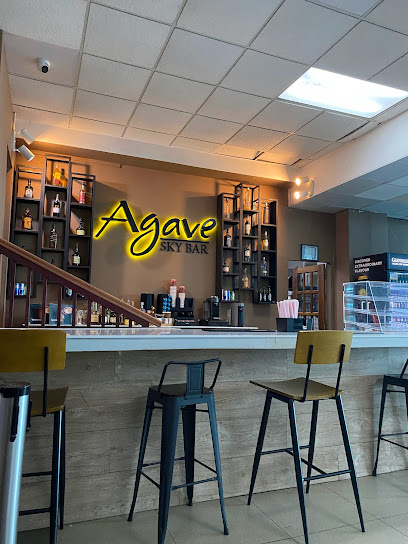
Golden city chinese restaurant
Experience authentic Chinese cuisine at Golden City in Bartica, where every dish is a flavorful delight waiting to be discovered.
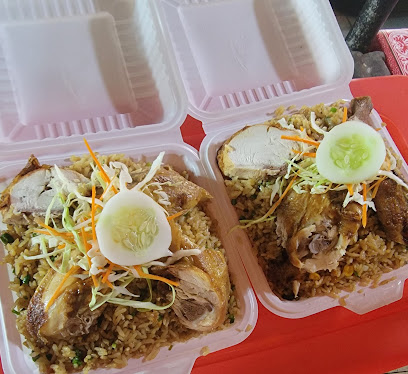
Z2 Restaurant and Bar
Discover the flavors of Bartica at Z2 Restaurant and Bar, where culinary excellence meets a vibrant atmosphere for an unforgettable dining experience.
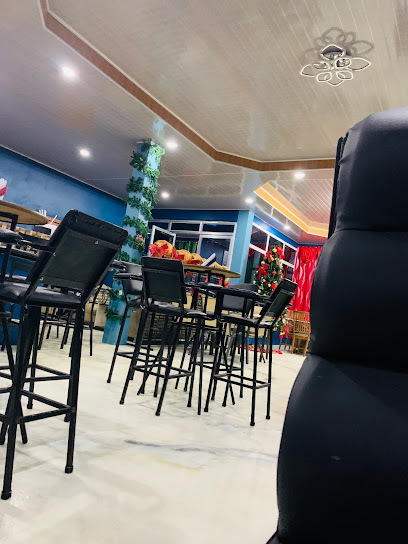
Jameels Bar
Discover Jameels Bar: Georgetown's vibrant nightlife hub where local charm meets exceptional service and unforgettable experiences.

Upper Level Restaurant and Bar
Discover the Upper Level Restaurant and Bar in Bartica, where delightful Caribbean cuisine meets stunning river views for an unforgettable dining experience.
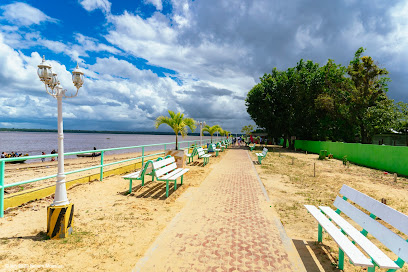
Salvis restaurant and bar
Discover the lively vibe of Salvis Restaurant and Bar, a perfect blend of local flavors and vibrant atmosphere for every traveler.

Rabin roopnarine bar
Experience the heart of Timehri at Rabin Roopnarine Bar, where local culture meets a vibrant social atmosphere.

Church's Chicken Bartica
Discover the delectable fast food offerings at Church's Chicken Bartica, where delicious fried chicken meets local charm.

Futu’s Chill Spot
Experience the vibrant atmosphere and refreshing drinks at Futu’s Chill Spot, a must-visit bar in Bartica for all travelers.

Truth Bar and Grill
Discover the vibrant flavors of La Parfaite Harmonie at Truth Bar and Grill, where every dish is a celebration of local culinary art.

River View Diner
Experience the charm of Bartica at River View Diner, a perfect family-friendly restaurant offering delightful local cuisine and stunning river views.
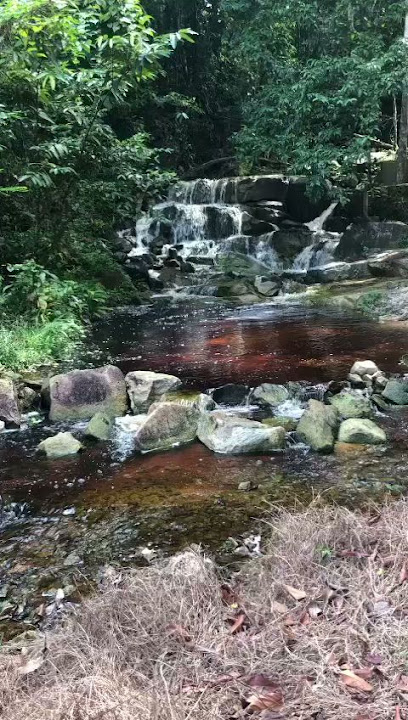
Local Phrases about Mazaruni River
-
- HelloWa deh
[wah deh] - GoodbyeLeh we meet again
[leh we meet again] - YesYeah man
[yeah man] - NoNah man
[nah man] - Please/You're welcomePlis
[plees] - Thank youTenkyu
[ten-kyu] - Excuse me/SorrySarry
[sah-ree] - How are you?How yuh deh?
[how yuh deh] - Fine. And you?Mi deh good. An yuh?
[mee deh good. an yuh] - Do you speak English?Yuh speak English?
[yuh speak english] - I don't understandMi nah ondastan
[mee nah un-der-stand]
- HelloWa deh
-
- I'd like to see the menu, pleaseMi wah see di menu, plis
[mee wah see dee menu, plees] - I don't eat meatMi nah eat meat
[mee nah eet meet] - Cheers!Cheers!
[cheers] - I would like to pay, pleaseMi wah pay, plis
[mee wah pay, plees]
- I'd like to see the menu, pleaseMi wah see di menu, plis
-
- Help!Help!
[help] - Go away!Gwan weh!
[gwan way] - Call the Police!Call de Police!
[call dee police] - Call a doctor!Call a dokta!
[call a dock-tah] - I'm lostMi loss
[mee loss] - I'm illMi sick
[mee sik]
- Help!Help!
-
- I'd like to buy...Mi wah buy...
[mee wah buy] - I'm just lookingMi jus a look
[mee jus a look] - How much is it?Awee much it deh?
[ah-wee much it deh] - That's too expensiveDat too much
[dat too much] - Can you lower the price?Yuh can drop de price?
[yuh can drop dee price]
- I'd like to buy...Mi wah buy...
-
- What time is it?Awee time it deh?
[ah-wee time it deh] - It's one o'clockIt one a deh clock
[it one ah dee clock] - Half past (10)Haaf pass ten
[hahf pass ten] - MorningMahnin
[mahn-in] - AfternoonAftanoon
[af-tah-noon] - EveningEevinin
[ee-vee-nin] - YesterdayYestadeh
[yes-tah-deh] - TodayTuday
[too-day] - TomorrowTamara
[tah-mah-rah] - 1One
[wun] - 2Two
[too] - 3Tree
[tree] - 4Fo
[foh] - 5Five
[fahyv] - 6Six
[siks] - 7Seven
[sev-en] - 8Eight
[ayt] - 9Nine
[nahyn] - 10Ten
[ten]
- What time is it?Awee time it deh?
-
- Where's a/the...?Weh di...deh?
[weh dee deh] - What's the address?Wah di address deh?
[wah dee address deh] - Can you show me (on the map)?Yuh can show mi (pan di map)?
[yuh can show mee (pan dee map)] - When's the next (bus)?Wah time di next (bus) deh?
[wah time dee next bus deh] - A ticket (to ....)A tickit (to ....)
[a ticket (to)]
- Where's a/the...?Weh di...deh?
History of Mazaruni River
-
Long before European explorers set foot in Guyana, the Mazaruni River was home to indigenous tribes such as the Akawaio and Arawak peoples. These communities thrived along the riverbanks, utilizing the rich natural resources for fishing, agriculture, and trade. The Mazaruni, teeming with life and surrounded by lush forests, provided an ideal environment for these early inhabitants, whose presence is still felt through archaeological finds and oral traditions.
-
In the late 16th and early 17th centuries, European explorers began to venture into the interior of Guyana, drawn by tales of El Dorado and the promise of untold riches. The Dutch were among the first to explore the Mazaruni River, establishing trading posts and small settlements along its banks. They were later followed by the British, who took control of Guyana in the early 19th century. These colonial powers sought to exploit the river's resources, leading to significant changes in the region's demographics and economy.
-
The discovery of gold in the Mazaruni River basin in the late 19th century sparked a gold rush that transformed the region. Prospectors from around the world flocked to the area, establishing mining camps and small settlements. The influx of people and the quest for gold brought both prosperity and hardship, as the environment was altered and indigenous communities were displaced. The remnants of these mining operations can still be seen today, providing a glimpse into a transformative period in the river's history.
-
In the late 19th century, the British colonial government established penal settlements in the Mazaruni area, utilizing the river's remote location and challenging terrain to house prisoners. The most notable of these is the Mazaruni Prison, which was constructed in 1842 and remains one of the oldest functioning prisons in Guyana. The prison's history is marked by stories of hardship, escape attempts, and the daily lives of those incarcerated within its walls, making it a significant historical landmark in the region.
-
In the mid-20th century, the potential of the Mazaruni River for hydroelectric power generation was recognized, leading to various studies and proposals for dam construction. While some projects were initiated, many were halted due to environmental concerns and financial constraints. However, the river continues to play a crucial role in the region's development, providing water for agriculture, transportation routes, and supporting the livelihoods of local communities.
-
The Mazaruni River holds deep cultural significance for the indigenous peoples of Guyana, who regard it as a vital part of their heritage and spiritual life. Efforts to preserve the river's natural beauty and cultural heritage have been ongoing, with various initiatives aimed at promoting sustainable tourism and protecting the environment. The river's rich history, combined with its stunning landscapes, makes it a focal point for cultural preservation and an important destination for those seeking to understand Guyana's diverse heritage.
Mazaruni River Essentials
-
The Mazaruni River is located in the Cuyuni-Mazaruni region of Guyana. The nearest international airport is Cheddi Jagan International Airport in Georgetown, the capital city of Guyana. From Georgetown, you can take a domestic flight to Bartica, which is situated near the confluence of the Mazaruni and Essequibo Rivers. Alternatively, you can take a minibus or taxi to Parika, followed by a speedboat ride to Bartica. The journey by road and river typically takes around 4 to 5 hours, depending on weather conditions and transit times.
-
In the Mazaruni River region, transportation mainly comprises riverboats and speedboats, which are the primary means of navigating the river and reaching various settlements and attractions. In Bartica, local taxis and minibuses are available for shorter distances. Renting a boat with a knowledgeable local guide can enhance your experience, allowing you to explore the river and its surroundings at your own pace.
-
The official currency in Guyana is the Guyanese Dollar (GYD). Credit cards are accepted in some hotels, restaurants, and shops in Bartica, but it is advisable to carry cash, especially when venturing into more remote areas along the Mazaruni River. ATMs are available in Bartica, but it is wise to withdraw sufficient cash in Georgetown before traveling, as ATM services can be limited in remote regions.
-
The Mazaruni River region is generally safe for tourists, but it is essential to exercise standard precautions. Avoid walking alone at night in unfamiliar areas and keep an eye on your belongings, especially in crowded places. Petty crime such as pickpocketing can occur, so stay vigilant. Some remote areas may have limited or no mobile phone reception, so plan accordingly and inform someone of your travel itinerary.
-
In case of emergency, dial 911 for immediate assistance. The local police station and medical facilities are available in Bartica. It is recommended to have travel insurance that covers medical emergencies. For minor health issues, there are pharmacies in Bartica where you can purchase over-the-counter medications. Additionally, it is prudent to carry a basic first aid kit when traveling to remote areas along the river.
-
Fashion: Do dress modestly, especially when visiting indigenous communities. Lightweight, breathable clothing is recommended due to the tropical climate. Avoid wearing flashy jewelry. Religion: Do respect local customs and traditions. Many indigenous communities along the river hold spiritual beliefs and practices. Public Transport: Do be respectful and patient when using riverboats and local transport. Don't overload boats beyond their capacity for safety reasons. Greetings: Do greet people with a friendly 'Hello' or 'Good day.' A handshake is common. Eating & Drinking: Do try local dishes and accept food offerings graciously. Don't refuse hospitality, as it is considered impolite.
-
To experience the Mazaruni River like a local, engage with the indigenous communities and learn about their customs and traditions. Participate in local festivals and events if your visit coincides with them. Explore the river's biodiversity by taking guided tours that include bird watching, fishing, and hiking in the surrounding rainforests. Don't miss visiting historical sites such as the Fort Kyk-Over-Al ruins, which provide a glimpse into the region's colonial past.
Nearby Cities to Mazaruni River
-
Things To Do in Bartica
-
Things To Do in Linden
-
Things To Do in Ituni
-
Things To Do in Anna Regina
-
Things To Do in Kwakwani
-
Things To Do in New Amsterdam
-
Things To Do in Lethem
-
Things To Do in Skeldon
-
Things To Do in Princes Town
-
Things To Do in Point Fortin
-
Things To Do in San Fernando
-
Things To Do in Lelydorp
-
Things To Do in Paramaribo
-
Things To Do in Couva
-
Things To Do in Sangre Grande








